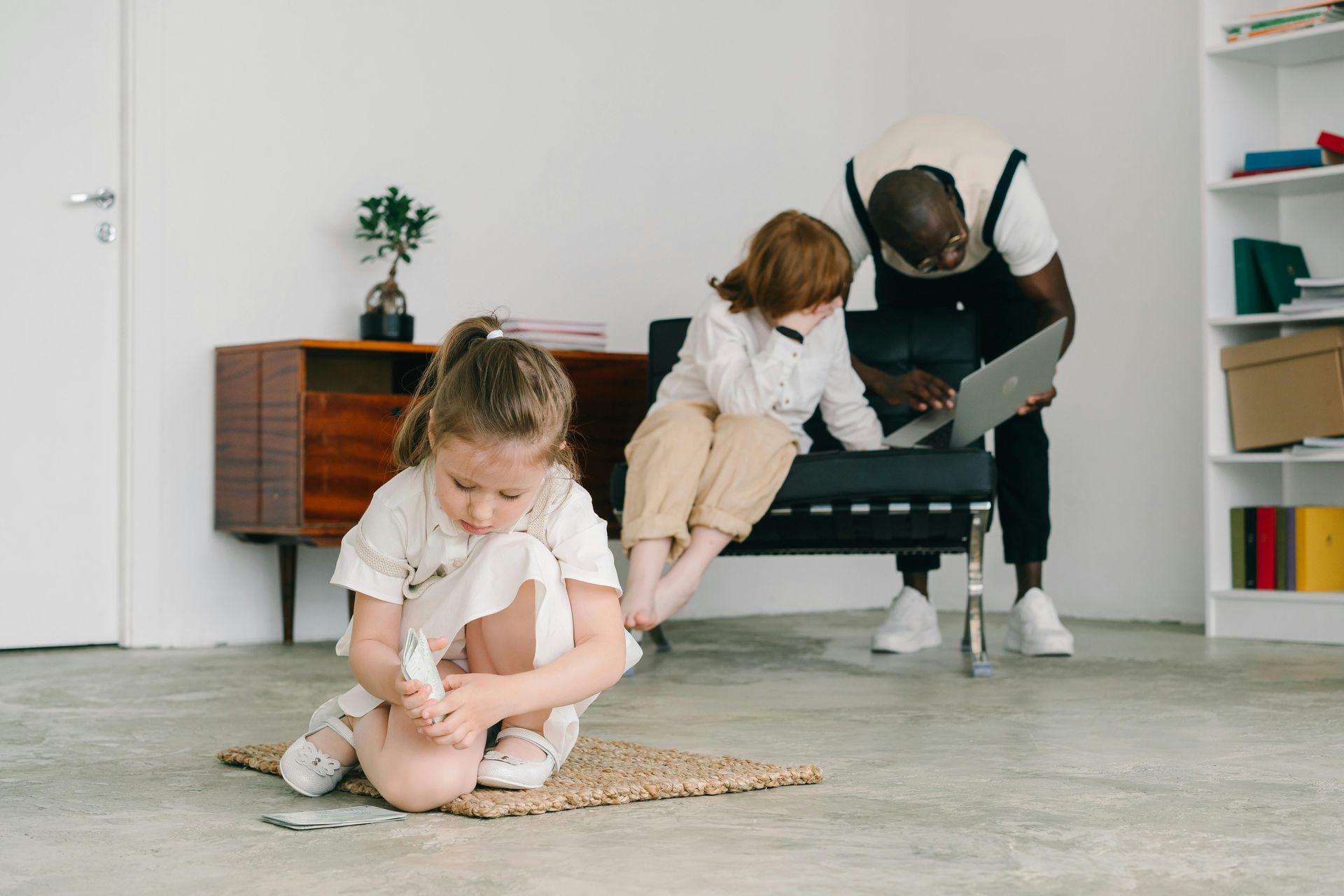Handling Regression in Skills: ABA Strategies for Families
Handling Regression in Skills: ABA Strategies for Families
Regression in skills can be a significant concern for families of individuals with Autism Spectrum Disorder (ASD) and other developmental diagnoses. It can be especially noticeable during breaks from structured environments, such as schools or therapy programs, where consistent routines and supports are typically in place. Understanding why regression occurs and how to address it using principles from Applied Behavior Analysis (ABA) is crucial for supporting skill recovery and continued growth.
Understanding Regression
Regression refers to the loss or decrease of previously acquired skills. For individuals with ASD, this may manifest in various areas, including communication, social interactions, daily living skills, or academic performance. Regression can feel disheartening for families who have celebrated progress, but it is important to remember that it is a natural part of the learning process.
One of the primary causes of regression is a lack of consistent practice and reinforcement. Skills that are not regularly practiced may weaken over time, a phenomenon ABA refers to as "response maintenance failure." This is particularly common during breaks from school or therapy, such as summer vacations or holidays. Without the structured practice and reinforcement typically provided in these settings, individuals may struggle to maintain their skills.
Changes in routine are another common factor contributing to regression. Breaks from school or therapy often bring disruptions to daily schedules, which can increase anxiety or reduce opportunities to engage in previously learned behaviors. Additionally, environmental changes, such as traveling or visiting new places, may create situations where established routines cannot be easily followed.
Behavioral regression can also be triggered by emotional or physiological changes. Illness, fatigue, or heightened stress can interfere with an individual’s ability to perform previously learned skills. It is important for families to consider these factors when observing regression and to approach the situation with understanding and patience.
The Role of ABA in Addressing Regression
Applied Behavior Analysis provides a structured framework for understanding and addressing skill regression. Central to ABA is the concept of reinforcement, which ensures that behaviors leading to positive outcomes are more likely to be repeated. When regression occurs, it is often necessary to revisit the original teaching methods that led to skill acquisition. This might involve using prompts, breaking skills down into smaller components (task analysis), and systematically reinforcing successful attempts to rebuild confidence and competence.
Proactive Strategies to Prevent Regression
One of the most effective ways to address regression is to prevent it through proactive strategies. Families can create opportunities for continued practice and reinforcement, even during breaks from school or therapy. For example, incorporating skills into daily routines helps ensure that individuals continue to use them in meaningful contexts. Activities like setting the table, practicing communication during family meals, or engaging in shared play can provide natural opportunities for reinforcement.
Using visual schedules or written plans can help maintain consistency during breaks. By establishing a predictable routine, families can reduce anxiety and provide clear expectations, which supports the retention of learned behaviors. Visual supports are especially helpful for individuals who rely on structure to navigate their day and can prevent frustration that might otherwise lead to regression.
Another important strategy is to collaborate with professionals, such as teachers or therapists, before a break begins. Creating a transition plan that outlines key skills to focus on during the break can guide families in maintaining progress. Professionals may provide practice materials, suggest activities, or recommend specific reinforcement strategies that align with the individual’s goals.
Addressing Regression When It Occurs
If regression does occur, it is essential to approach the situation with a positive and constructive mindset. Regression does not erase prior progress; rather, it highlights areas where additional practice and support are needed. Reassessing the individual's current skill level is the first step. This may involve conducting a brief skill assessment to determine which components of the skill remain intact and which require reteaching.
When reteaching skills, families can use the same principles that were effective during initial acquisition. For instance, task analysis allows families to break complex skills into smaller, more manageable steps. By focusing on one step at a time and gradually building upon successes, individuals can regain confidence and proficiency.
Reinforcement is a critical component of skill recovery. Providing immediate and meaningful reinforcement for each successful attempt encourages continued effort and persistence. Families should aim to use reinforcers that are highly motivating for the individual, which may include favorite activities, tangible rewards, or social praise. Over time, the reinforcement schedule can be thinned to promote greater independence.
It may also be necessary to increase prompting temporarily to support skill recovery. Prompts provide additional cues or assistance to help the individual perform the desired behavior. Using a hierarchy of prompts, starting with the least intrusive (e.g., verbal prompts) and progressing to more direct prompts (e.g., physical guidance) only when necessary, can ensure that prompting is effective without creating dependence. Prompt fading should occur as the individual regains proficiency to encourage independent performance.
Special Considerations for Breaks from School
Breaks from school present unique challenges and opportunities for families to support skill retention. Many individuals with ASD thrive on the predictability and structure provided by school routines, and the absence of this structure can increase the likelihood of regression. However, breaks also offer valuable time for families to reinforce skills in natural environments and across different contexts.
One effective approach is to establish a home-based schedule that mirrors the structure of the school day. This might include designated times for learning activities, social interactions, physical activity, and leisure. Incorporating variety and flexibility into the schedule can help keep the individual engaged while maintaining a sense of routine.
Families can also integrate academic or therapeutic goals into everyday activities. For example, practicing counting during cooking, reinforcing turn-taking during board games, or encouraging communication during errands provides meaningful opportunities for skill practice. These activities not only support skill retention but also promote generalization, a key objective in ABA.
For families with access to extended school-year programs or other supplemental services, participation in these programs can help bridge the gap during breaks. These services often provide structured opportunities for continued learning and reinforcement, which can reduce the risk of regression. Additionally, therapists or teachers may offer recommendations for community resources, such as social skills groups or recreational programs, that align with the individual’s goals.
The Importance of Patience and Flexibility
Skill regression can be a frustrating experience for families, but it is important to approach the situation with patience and flexibility. Every individual learns at their own pace, and setbacks are a natural part of the learning process. Families should celebrate small successes and recognize that progress is often nonlinear.
Collaboration with professionals is invaluable in addressing regression. ABA therapists, behavior analysts, and educators can provide guidance, support, and tailored strategies to help individuals recover lost skills. Open communication with these professionals ensures that interventions are consistent and aligned with the individual’s needs.
Encouraging Long-Term Success
Preventing and addressing regression requires a commitment to consistency and reinforcement. Families play a critical role in creating a supportive environment where individuals can continue to practice and refine their skills. By incorporating ABA strategies into daily routines, maintaining open communication with professionals, and celebrating progress, families can help individuals with ASD achieve lasting success.
While regression may feel discouraging, it is an opportunity to revisit foundational skills and strengthen the individual’s capacity for growth. With the right strategies and a focus on reinforcement, skill recovery is not only possible but achievable. Applied Behavior Analysis provides a robust framework for understanding and addressing regression, empowering families to navigate challenges and support their loved ones effectively.
Conclusion
Skill regression refers to the loss or decrease of previously acquired abilities, a phenomenon often observed during transitions or extended breaks from therapy or school. Factors such as changes in routine, lack of consistent reinforcement, and even stress or illness can contribute to these challenges. Understanding these factors is essential for implementing strategies that promote recovery.
ABA offers a comprehensive framework for addressing regression through reinforcement, consistent practice, and structured reteaching. Key strategies include:
Incorporating skills into daily routines to ensure consistent use and reinforcement.
Using visual schedules to maintain predictable routines and reduce anxiety.
Revisiting foundational teaching techniques, such as task analysis and prompting, to rebuild skills gradually.
Collaborating with professionals to create transition plans and access supplemental programs during breaks.
By approaching regression with patience and flexibility, families can provide effective support for skill recovery and long-term success.
References
Cooper, J. O., Heron, T. E., & Heward, W. L. (2020). Applied Behavior Analysis (3rd ed.). Pearson.
Leaf, J. B., McEachin, J., & Taubman, M. (2016). It’s Time for School! Building Quality ABA Educational Programs for Students with Autism Spectrum Disorder. DRL Books.
Schreibman, L. (2005). The Science and Fiction of Autism. Harvard University Press.
Sundberg, M. L., & Partington, J. W. (1998). Teaching Language to Children with Autism or Other Developmental Disabilities. Behavior Analysts, Inc.
Vismara, L. A., & Rogers, S. J. (2010). Behavioral treatments in autism spectrum disorder: What do we know? Annual Review of Clinical Psychology, 6(1), 447-468.











